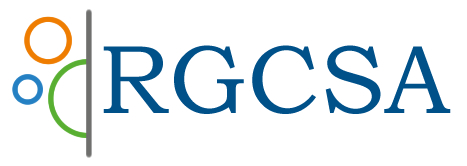Author: Editors: Nicholas Campion, Patrick Curry and Michael York
Abstract: Book review:
Collections of papers presented at conferences are not always the most interesting of books. They have their uses, of course, enabling those who were unable to attend the conference to read what was said, and as archive material for later researchers to refer to, but the editors of collections of papers rarely set their sights any higher than aiming to provide a record.
This book, however, is different. The editors and conference organisers realised that with the inaugural conference of a totally new academic centre, specialising in a discipline which is itself new, the book would not only have to provide a record of what was presented, but would also become the benchmark for the centre itself, and to some extent for the whole area of study, defining the field for those who would follow. The book amply demonstrates that their vision has been fully realised. The speakers and contributors, too, appear to have been aware of the significance of the occasion, and have each given of their very best, papers which are not only excellent in themselves but which also open the way to further research and debate.
There are fifteen papers here, plus introductory pieces by Patrick Curry, and Nicholas Campion, who is head of the Sophia Centre The papers are wide-ranging in both content and approach: some are straightforward historical studies, spanning eras from the classical world through the Renaissance to early Modern England, while others approach the subject from a more scientific view, and one is a statistical study. Several debate how cultural astronomy and astrology could or should be studied in an academic environment, and a couple comment on how doing so would inevitably create intellectual tensions and divisions, to the detriment of the subject itself.
There are, of course, tensions and divisions within the astrological community, and several of these papers carry with them the political message of their authors. This is unavoidable. Yet these undercurrents are very much a part of the state of astrology in the present day, and a fit subject for study. The astrologer and his prejudices and preoccupations are part of what gives astrology its vitality, and should therefore be viewed as part of the whole phenomenon. Some readers may find it strange that two of the papers in this collection care concerned with the interpretation of horoscopes corresponding to the dates of the conference – yet it would be stranger still to exclude them, for the horoscope and its symbols are the specific language of astrology, and it is this language and its contribution to our wider culture that the Sophia Centre aims to study.
It is interesting, too, to note the subtle differences between papers written by those who are ‘inside’ the practice of astrology, and those who stand outside. Prudence Jones’ ‘Aspects of Deity’ is carefully researched and clearly presented, without a hint of that over-enthusiasm or tendency to leap to unsupportable conclusions to which other ‘insiders’ are sometimes prone, yet it is equally clear that her standpoint is firmly within the practice, speaking from experience rather than standing outside looking in. Her closing sentences are almost a mission statement for the whole Sophia enterprise when she says that ‘…astrological knowledge can help historical research. …It allows us to find our way easily around the structure of ancient cosmology and to unpick ambiguous definitions. …Without insider knowledge we are lost when dealing with the astrological worldview of Hellenistic (and much earlier) philosophy. With it we can begin to make sense of otherwise baffling imagery.’
It is particularly pleasing to note that as well as offering a wide historical and philosophical range, this collection also offers a wide geographical range in that it contains contributions from scholars in France, Spain, Finland, Poland, Brazil and the US. Such genuinely worldwide participation can only be applauded and, it is hoped, continued in the future.
The fact that fifteen papers of such widely different topics and viewpoints can sit side-by-side with each other and be taken together as valid approaches to a multifaceted subject is due in no small measure to the wonderfully broad and accommodating envelope laid out by Campion’s introduction. His overview of the history of the study and the strands within it gives everything its due place and makes sense of a difficult subject. For once, the introduction really does introduce what follows, helping the reader place the papers in context.
The book makes no secret of the fact that it is intended to be an advertisement for the Sophia Centre and its work, but it does it in the best possible way, by showing what excellent work has already been done and inviting the reader to join in and continue what has been started. For anyone interested in history, cosmology, philosophy, anthropology, or symbology; or for anyone who recognises that an interdisciplinary approach works wonders in refreshing tired or worn-out modes of thought, this book is worth reading. It manages to be more than just a record of a conference, and more, too, than a manifesto: in terms of the relationship between astrological and academic thinking, it is a window on the past, a snapshot of the present, and a blueprint for the future, all in one.
Bernard Eccles
Keywords: Sophia Centre, Renaissance, Modern, scientific, horoscopes,astrology, deity, Hellenistic
Notes:
Publication: Correlation Journal of Research in Astrology
Issue: Volume 23 Number 1
Dated: 2005
Pages: 70 – 71
